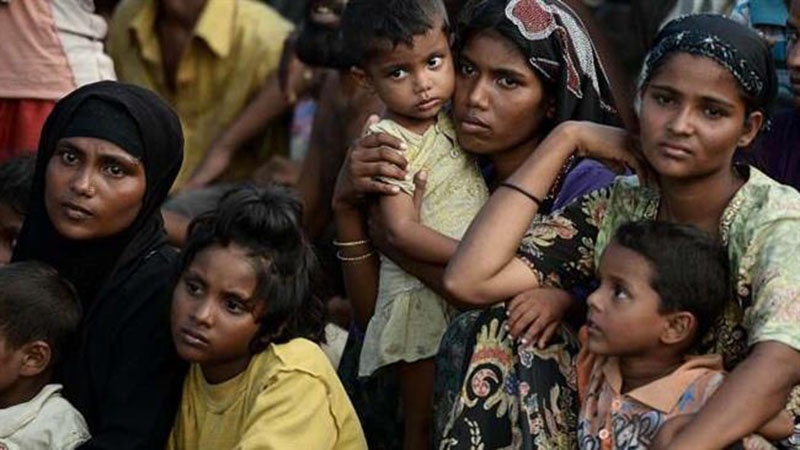UN Migration Director General William Lacy Swing is seriously concerned about increasing reports by vulnerable Rohingya arriving from Myanmar into Bangladesh of sexual and gender-based violence. IOM is providing urgent medical and psychological support to survivors.
“Sexual and gender-based violence is a severe, life-threatening public health and human rights abuse and I am deeply shocked and concerned by reports we are receiving from new arrivals in Cox’s Bazar,” said Director General Swing from the Organization’s Headquarters in Geneva, when discussing IOM’s response.
“Particularly women and girls, but also men and boys, have been targeted for and are at risk of further exploitation, violence and abuse simply because of their gender, age and status in society.”
Since 25 August, when violence broke out in Rakhine State, Myanmar, an estimated 480,000 people have crossed into Cox’s Bazar, Bangladesh. Prior to this most recent influx, Rohingya had been fleeing Rakhine State for years following various waves of insecurity, including approximately 74,000 people last October. Gender-based violence has been recorded in needs assessments, fact-finding missions and through the provision of life-saving services. Rape, sexual assault, domestic violence and child marriage, among other forms of gender-based violence, have been identified and require immediate, holistic responses from humanitarian actors.

Although the known number most likely only represents a small portion of actual cases, IOM doctors have treated dozens of women since August, who have experienced violent sexual assault, and since October 2016, IOM has treated or received reports from hundreds of women and some men.
“IOM, as the agency coordinating the humanitarian response, has been taking action to urgently respond to gender-based violence and we are expanding our services to ensure that the right type of support reaches survivors. We also have to ensure that no further abuse is perpetrated in the settlements, due to overcrowded and difficult hosting conditions. Frontline responders have been trained in the identification and handling of most vulnerable cases we have been setting up safe spaces for people in need across all sites,” said Swing.
As a core part of humanitarian response, preventing and responding to gender-based violence is life-saving. Survivors are at high risk of severe and long-lasting health, emotional, social, economic, and security problems. Through a survivor-centred approach, IOM strives to create a supportive environment in which the survivor’s rights and wishes are respected, their safety is ensured, and they are treated with dignity and respect. Given the barriers and risks mentioned, confidentiality about survivors’ cases is key to ensure that all of the persons affected trust our services and seek the support they deserve, without being stigmatized.
Response to gender-based violence is multi-sectoral in nature – immediate health and psychosocial support are key, together with safe environments and possibly legal support. In Bangladesh, IOM is not only providing health and psychosocial support but also working with partners on legal support and safety.
Original source: IOM
Published on 27 September 2017

